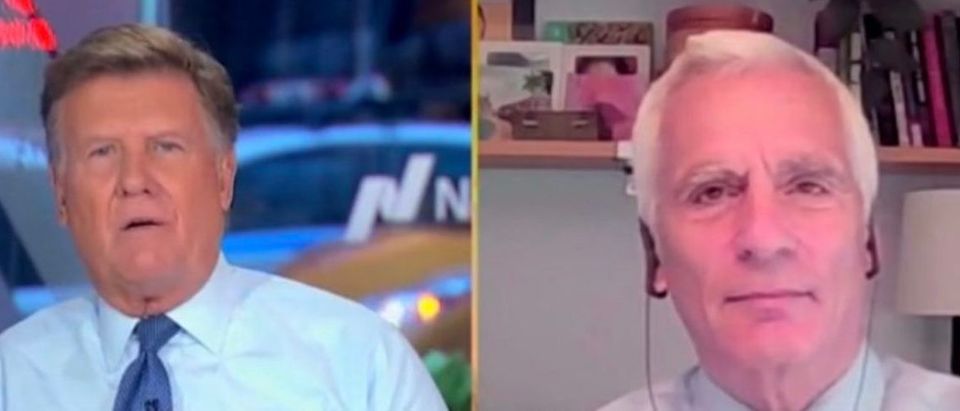CNBC anchor Joe Kernen criticized the current economy during a Monday interview with White House economic adviser Jared Bernstein, suggesting that the Biden administration’s policies contributed to the market’s downfall.
Kernen argued that President Joe Biden’s student loan forgiveness plan, which provides $10,000 in relief for those making under $125,000 a year and $20,000 for Pell Grant recipients, will worsen the record high inflation numbers and the declining market. Inflation stood at 8.3% in August, significantly exceeding economists’ expectations.
“The president once again bowing to the far-left. Does that justify increasing demand and making things worse right at this time, Jared? I know you know, there’s no way you can sell this to me with a straight face,” Kernen said.
Bernstein responded that the impact on inflation will be “neutral” because student loan payments, which have been paused since the early days of the COVID-19 pandemic, will restart in January, offsetting the effects of the forgiveness. “So, in that sense, it’s a bit of taking a log off the fire and putting an equal size log on it,” he said. (RELATED: ‘I’m Not Gonna Let You Do The Thing’: Martha MacCallum, Bernstein Clash Over Student Loan Forgiveness)
Kernen then pressed Bernstein on the Biden administration’s frequent boasts about lowering the deficit, which had dropped by $1.7 trillion since Biden took office. The anchor said these claims are misleading, since the government is no longer pouring funds into “pandemic-related expenses.”
“You don’t believe that $7 trillion in three years has anything to do with inflation being at 40-year highs, Jared? Really?” he asked.
Bernstein argued that the strong job market and the resulting increase in tax receipts have contributed to the nation’s deficit reduction and added that current monetary and fiscal policies are combating inflation.
“The increase, the percent increase in tax receipts into the treasury, is actually larger than the percent declines in spending, 26% to about 20% and the reason for that is the very strong economic backdrop,” he said. “You just had a conversation with Professor [Jeremy] Seigel about how strong the job market’s been, of course, that’s been historic. Almost 10 million jobs, an unemployment rate that’s close to a 50-year low and that’s been generating a significant tax receipt. So, the deficit reduction is real.”
“I think the important part on inflation, and people get this wrong too, is that when you have this degree of negative fiscal impulse, meaning the government is actually seriously on the fiscal break relative to last year, that’s disinflationary so both monetary and fiscal policy are pushing back against inflation,” Bernstein added.
Kernen previously told Bernstein in an Aug. 31 interview that it is “disingenuous” of the administration to claim the lowering the deficit will pay for debt forgiveness. Bernstein made the same argument then that he made Monday, arguing that the policy will not be inflationary because of the rate at which the deficit is declining.
A study conducted by the Committee for a Responsible Federal Budget found that student loan forgiveness would add $250 billion to the federal deficit, is likely be inflationary and will provide little to no stimulus to the economy.


